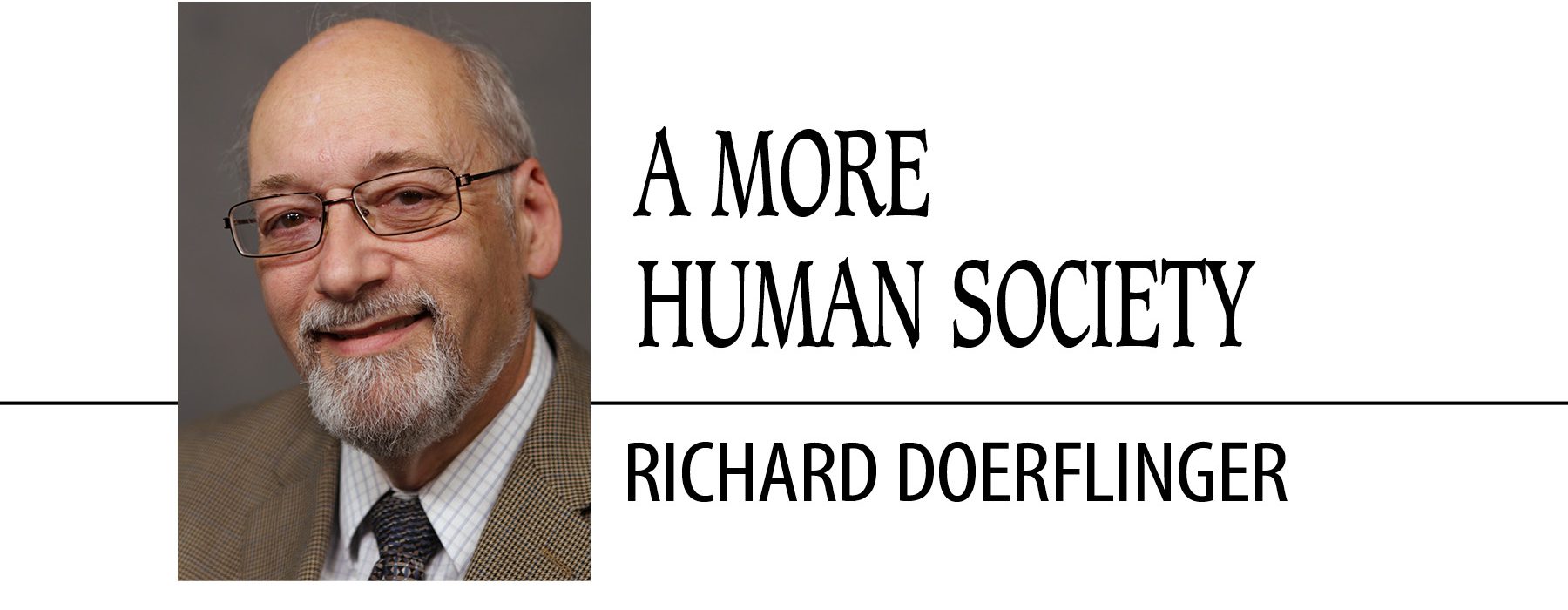October 6, 2020 // A more human society
Two kinds of feminism
“Today, our nation mourns the loss of a trailblazer, not only in the field of law, but in the history of our country.”
So begins President Donald Trump’s proclamation on the death of Supreme Court Justice Ruth Bader Ginsburg, ordering the American flag to be flown at half-staff around the world in her honor.
The proclamation notes that Ginsburg was a devoted wife and mother when she entered law school. She had a distinguished career as a law professor, litigator and judge, and became the second female Supreme Court justice. She worked tirelessly against barriers to women’s equality that many women today do not realize once existed.
Sometimes legal stereotypes about men as providers and women as homemakers were unjust to men. In 1975, she persuaded the Supreme Court to invalidate a Social Security policy that allowed widows but not widowers to collect special survivor benefits when caring for minor children.
More troubling was her reasoning on abortion. As an expert on making incremental changes in law, she did think the Roe v. Wade decision took the country too far too quickly, giving rise to a pro-life movement that fights the decision to this day.
But she also regretted that the court treated abortion as a matter of “privacy” rather than sex discrimination. Privacy would not create a positive obligation for public funding and encouragement of abortion. An argument based on equal protection for women would ultimately achieve more.
Other Supreme Court justices balked at her approach. Having based the right to abortion on “privacy” in 1973, then on “liberty” since 1992, perhaps they worried that yet another shift in rationale would expose legalized abortion as a policy goal in search of a legal argument.
But in dissenting from the court’s 2007 decision upholding a ban on partial-birth abortion, she wrote that “legal challenges to undue restrictions on abortion procedures do not seek to vindicate some generalized notion of privacy; rather, they center on a woman’s autonomy to determine her life’s course, and thus to enjoy equal citizenship status.” Her dissent was joined by three other (male) justices.
Without abortion, are women second-class citizens? Yet abortion often most benefits men who want to avoid responsibility for their behavior. They decide that the height of chivalry is not to marry a pregnant partner, or accept their own parental obligations, but to pay for an abortion. If the woman declines, it is “her choice” and her problem.
The woman nominated to succeed Ginsburg, Amy Coney Barrett, is among those with distinguished careers who can see her predecessor’s life story as making her own possible.
Married, like Ginsburg, to another attorney, she has seven children, including two adopted children born in Haiti and a son with special needs. She graduated at the top of her class at the University of Notre Dame Law School and has taught there; all her faculty colleagues and hundreds of former students urged her confirmation as an appellate judge in 2017.
But this working mom is a Catholic and is said to be pro-life. Which raises a question about feminism.
If men and women should have equal rights, which of them must change? Do we teach women that they can abandon their children as readily as irresponsible men? Or as Ginsburg argued in 1975, do we help men to support and protect the children they engender? In other words, do we accept women’s gift of being able to nurture new life, and change male society to accommodate and support that gift?
Perhaps public servants like Amy Coney Barrett could help our society understand this second and richer meaning of feminism.
Richard Doerflinger worked for 36 years in the Secretariat of Pro-Life Activities of the U.S. Conference of Catholic Bishops. He writes from Washington state.
The best news. Delivered to your inbox.
Subscribe to our mailing list today.






